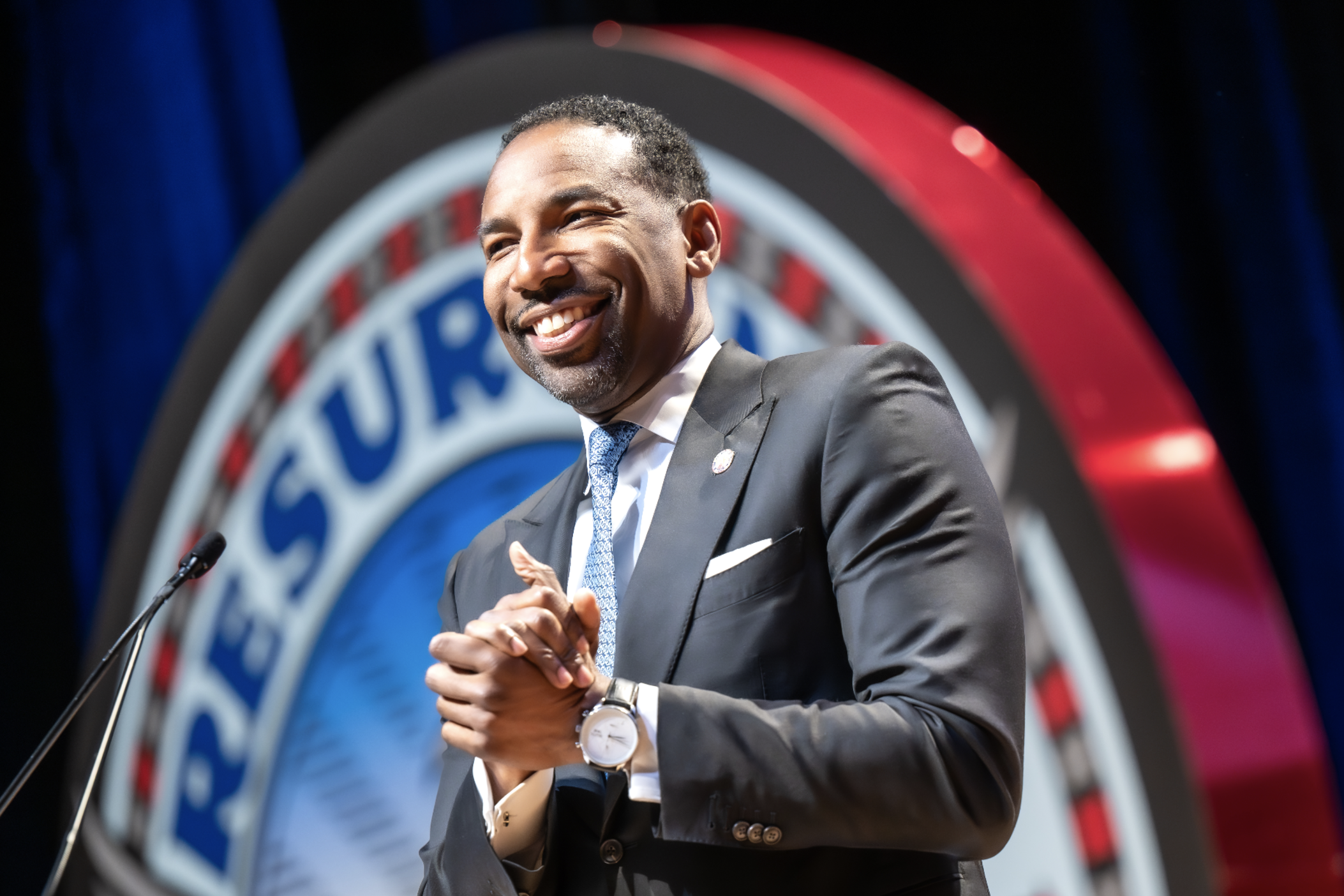Section Branding
Header Content
WATCH: Atlanta Mayor Andre Dickens delivers annual State of the City address
Primary Content
At the Woodruff Arts Center in Midtown Atlanta today, Mayor Andre Dickens spoke to the business community about reducing crime in the city, reflecting on the "Year of the Youth" initiative, affordable housing, law enforcement and economic development and investment.
In his annual State of the City speech, Dickens also highlighted efforts by the city to address inequality and build up transit accessibility.
Dickens announced MARTA will have four new stations in development with one connecting riders to the Westside BeltLine.
He said the MARTA station at Murphy Creek will ensure residents on the south side of Atlanta can access all the city has to offer.
“To create healthy, thriving neighborhoods we must build a transportation system that is accessible to residents across the entire city,” he said. “Our current monorail system is underutilized, in part because we don't have enough stations located where residents need it the most.”
The Murphy Crossing development is a 20-acre site in Southwest Atlanta designed to revitalize the neighborhood similar to Ponce City Market in Old Fourth Ward. Outside of projects to attract new business and build new affordable housing, the city is investing in improving existing neighborhoods.
Dickens said he plans to ask the city council to allocate funds to improve areas that have been overlooked for generations.
“This includes funds for affordable housing, blight reduction, health, education, green space, public infrastructure, and other essential services into these neighborhoods,” Dickens said.
Recently the city of Atlanta demolished Forest Cove apartments, a Section 8 housing development in South Atlanta, two years after is was considered a blight and condemned. Now Mayor Dickens is working with the Thomasville Heights community to rebuild a more vibrant neighborhood and ensure all displaced families have a chance to return.
The city will also address food deserts on the South side by creating its own market offering fresh produce. Dickens said in his speech that corporations weren’t willing to invest.
“When we reached out to traditional grocery stores, they told us they couldn’t make a profit,” he said. “So they wouldn't be coming. We even offered incentives, but still no takers. Well, that's just not good enough.”
Food insecurity is one of the city’s main priorities as they’ve worked to get unhoused people off the streets and into stable housing. Atlanta recently opened The Melody, a 4- unit shipping container community to shelter formerly unhoused people. Dickens said housing is the foundation of change.
“The folks who need affordable housing are your teachers, your police and firefighters, your barista that pours your coffee, or our senior citizens,” he said. “These are our neighbors who simply can't afford a $400,000 home when it comes to affordable housing.”
Watch the full address below.
This is a developing story.


